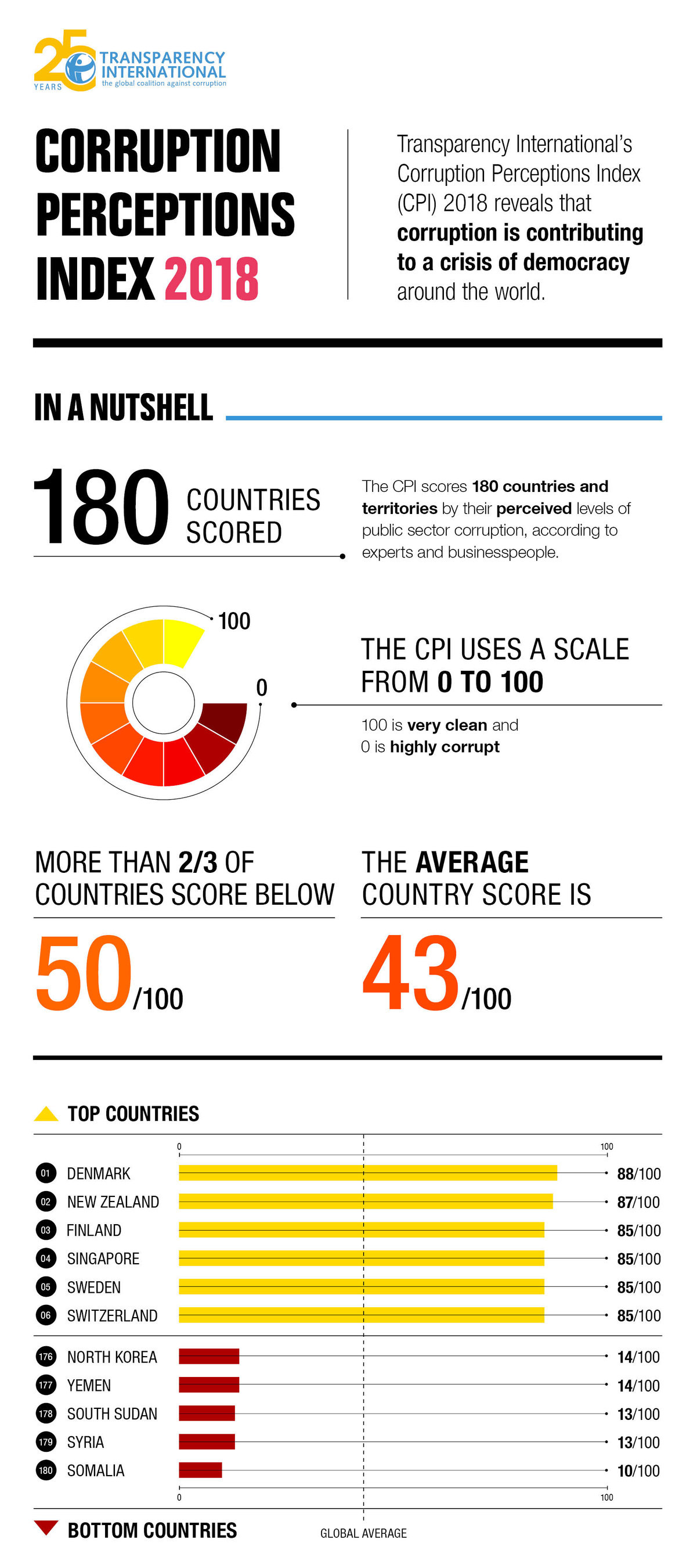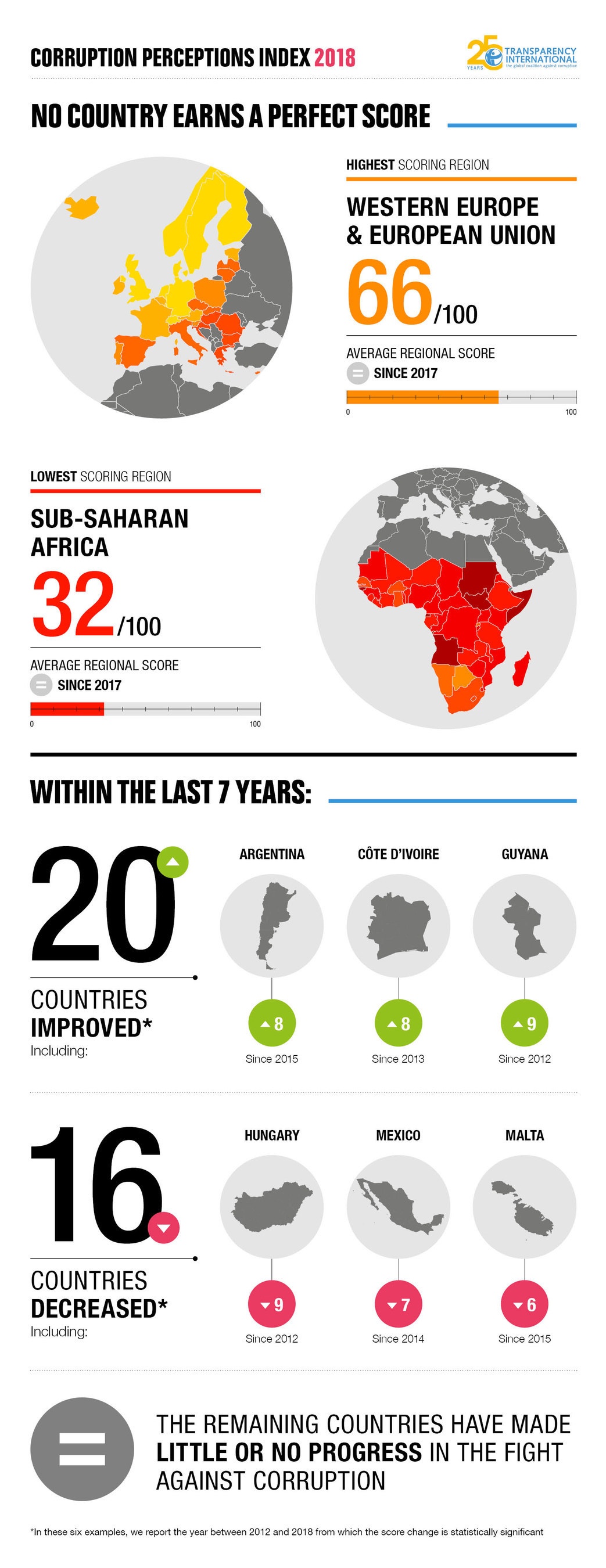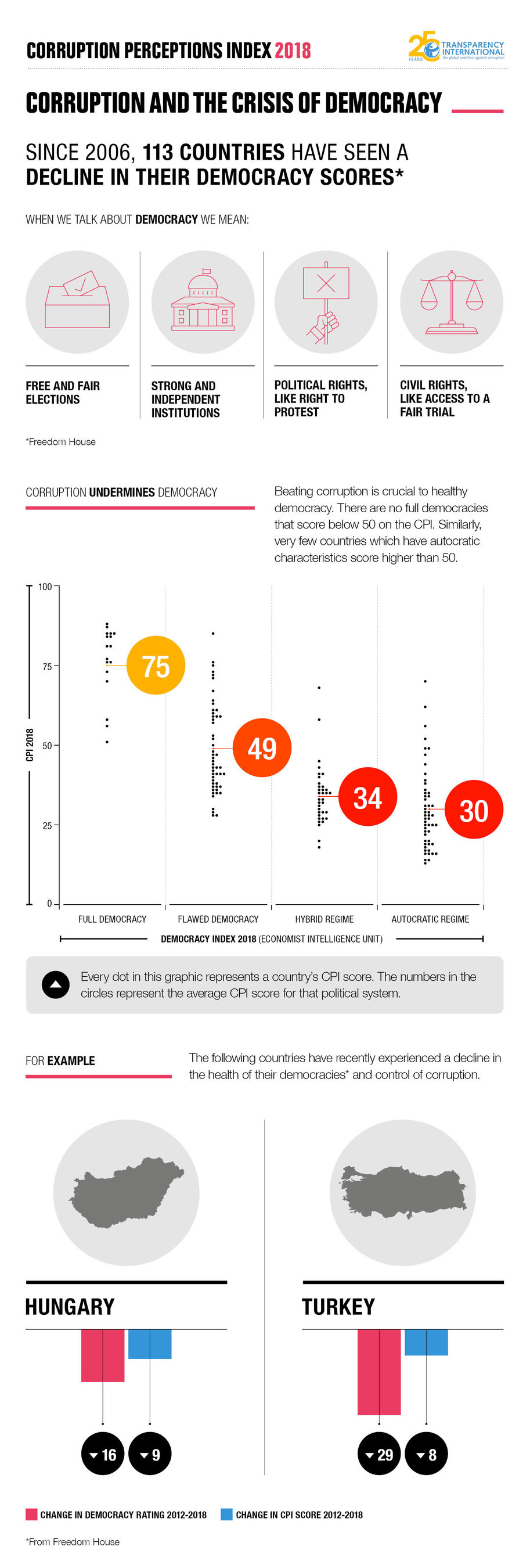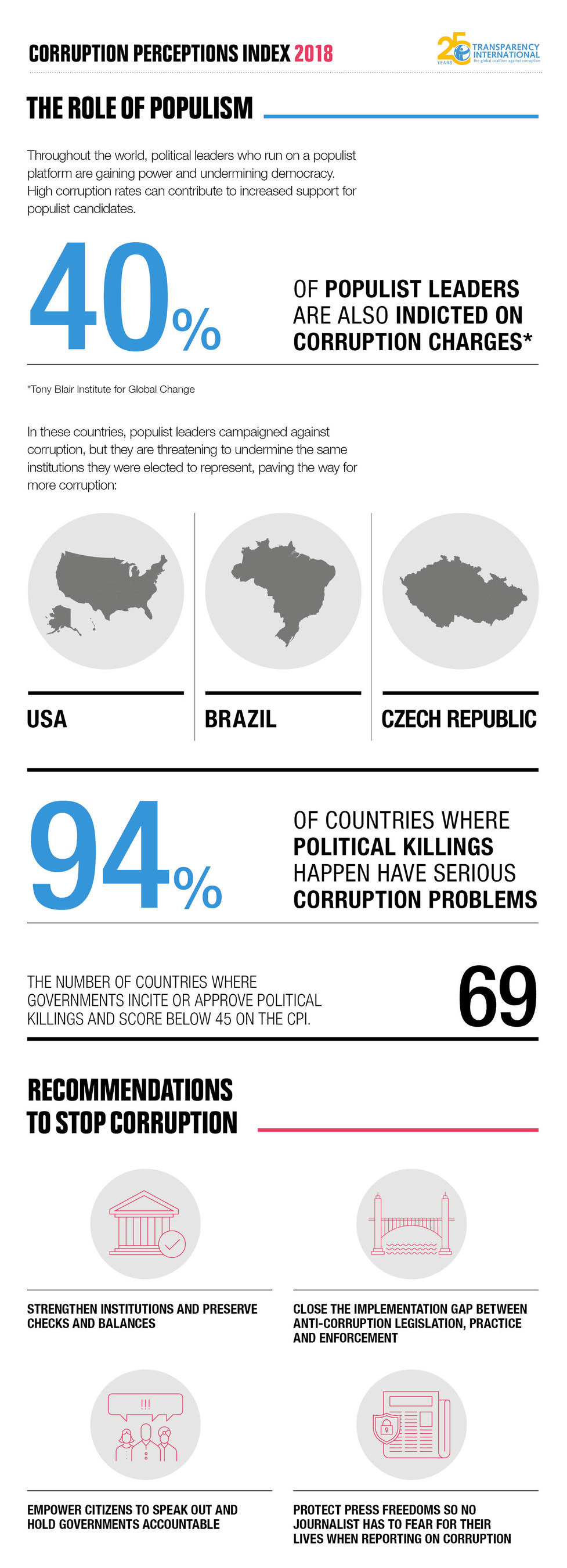The 2018 Corruption Perceptions Index (CPI) released today by Transparency International reveals the United States as a key country to watch in a global pattern of stagnating anti-corruption efforts and a worldwide crisis of democracy. With a score of 71, the US has dropped four points since last year. This marks the first time since 2011 that the US falls outside of the top 20 countries on the CPI.
“A four point drop in the CPI score is a red flag and comes at a time when the US is experiencing threats to its system of checks and balances, as well as an erosion of ethical norms at the highest levels of power,” said Zoe Reiter, Acting Representative to the US at Transparency International. “If this trend continues, it would indicate a serious corruption problem in a country that has taken a lead on the issue globally. This is a bipartisan issue that requires a bipartisan solution.”
The 2018 CPI measures public sector corruption in 180 countries and territories, drawing on 13 expert assessments and surveys of business executives to give each country a score from zero (highly corrupt) to 100 (very clean). Five of the nine sources used to compile the score for the US showed a noteworthy drop in score*. The other sources showed no improvement.
CPI global highlights
Denmark and New Zealand top the Index with 88 and 87 points, respectively. Somalia, Syria and South Sudan are at the bottom of the index, with 10, 13 and 13 points respectively.
Overall, more than two-thirds of countries score below 50 in the 2018 CPI, with an average score of only 43. Since 2012, only 20 countries have significantly improved their scores, including Argentina and Côte D’Ivoire, and 16 have significantly declined, including, Australia, Chile and Malta.
Corruption and the crisis of democracy
Cross analysis with global democracy data reveals a link between corruption and the health of democracies. Full democracies score an average of 75 on the CPI, with no full democracy scoring less than 50. In 2016, the United Stateswas downgraded from a full to a flawed democracy in the Democracy Index, a gradual downward trend which started in 2008. In 2018, the US received its lowest Freedom in the World Index score for political rights since 1972, when measurement began.
“Corruption chips away at democracy to produce a vicious cycle, where corruption undermines democratic institutions, and in turn, weak institutions are less able to control corruption,” said Patricia Moreira, Managing Director of Transparency International. “Around the world, we need to do more to strengthen checks and balances and protect citizens’ rights, and the US is no exception.”
In 2017, a public opinion survey published by Transparency International showed that the US government is losing citizens’ trust. According to the survey, nearly six in ten Americans believed that the US was more corrupt than the previous year, with the White House considered the most corrupt institution in the US.
“The expert opinion captured by the CPI supports the deep concern over corruption in government reported by Americans in our earlier survey. Both experts and the public believe the situation is getting worse,” added Reiter.
Drawing on 25 years of experience as the world’s leading anti-corruption coalition, Transparency International emphasises the following as essential pre-requisites for fighting corruption:
- A robust system of checks and balances on political power.
- Effective controls against conflicts of interest and private influence over government decisions.
- Citizen participation in politics and protections against voter suppression and other forms of disenfranchisement.
- A free, diverse and pluralistic media with regular and equal access to those in power.










